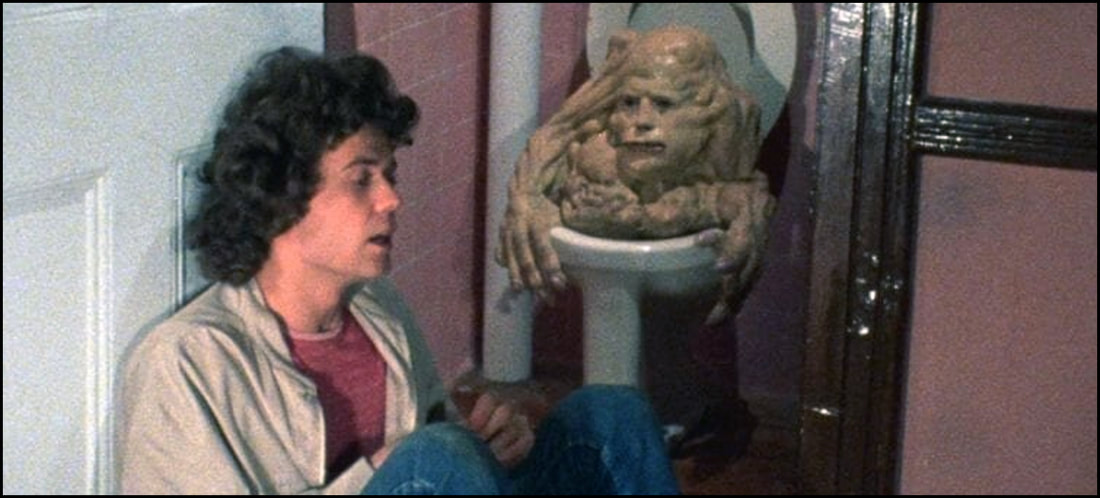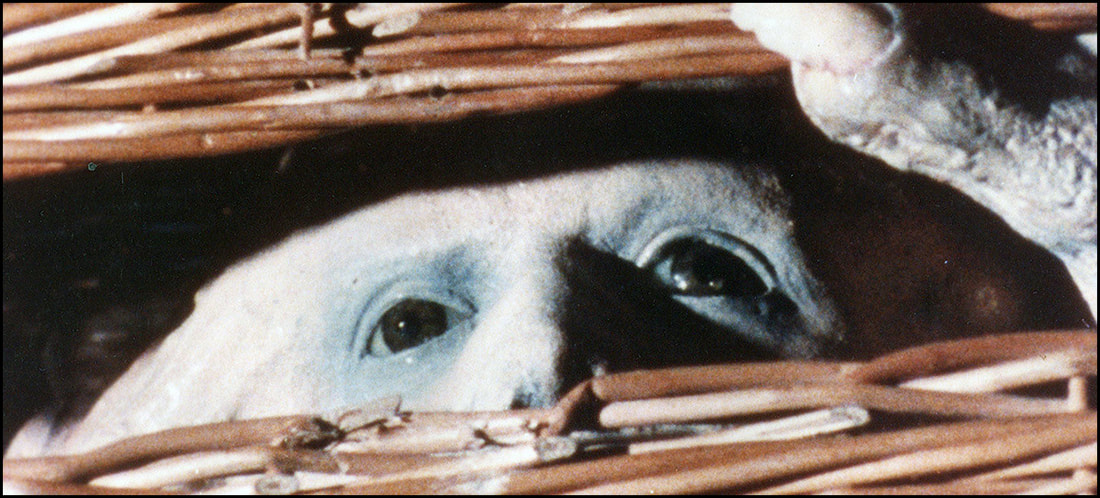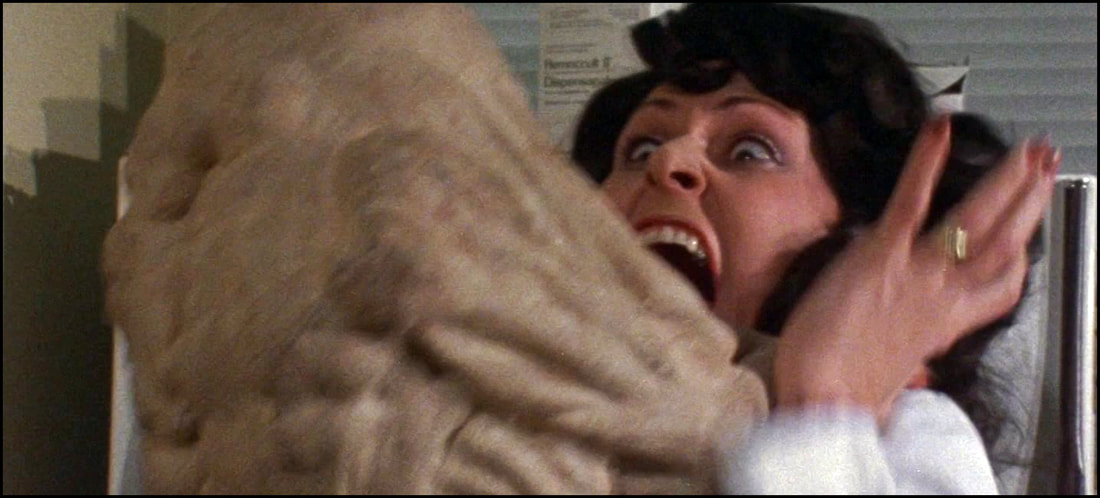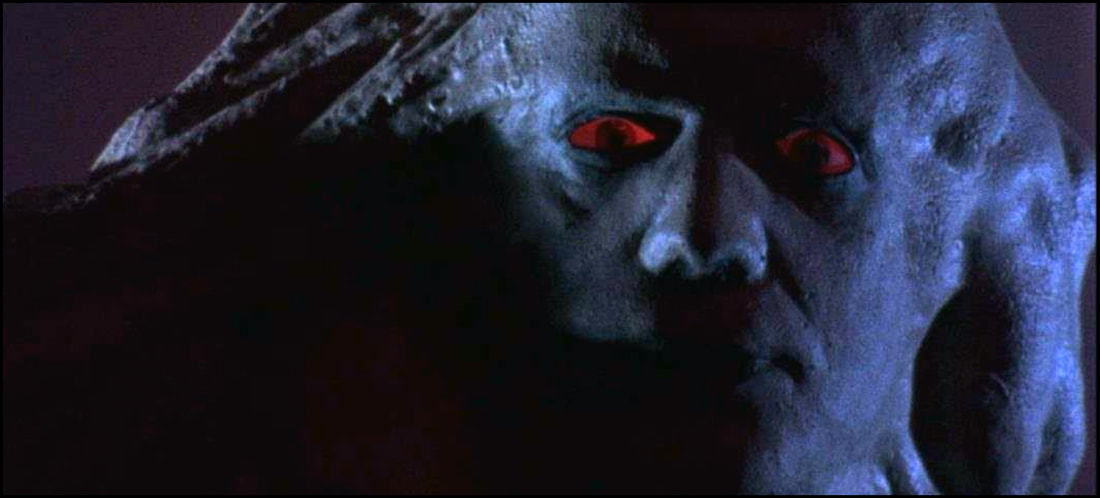Functionally, there isn’t a big deal of difference in how these two types are constructed. Usually, neither has much of a budget. Neither has, say, big name talent that can get up in the marquee lights and help buoy the potential box office … and that’s assuming they got a theatrical release to begin with. And – to a degree – maybe neither has what would be the kind of story or narrative that would propel a specific film near the mainstream. The dirty little secret is that genre films – Science Fiction, Fantasy, and Horror – really can’t reach blockbuster heights without pulling in your average Tom, Dick, Harry, Marcia, Jan, and Cindy: there must be enough interest to get folks besides the most ardent fans in the seats, or the picture is going to suffer the usual fiscal collapse.
Now, a lot of this gets even murkier – and vastly harder to predict – when one factors in the vast array of direct-to-video inventory that was dumped into the marketplace with the home video explosion of the 1980’s and 1990’s. Readers and watchers today can’t even begin to fathom just how many previously unheard-of titles were miraculously in stock at the corner video stores of that generation; and – hoping against hope for a diamond-in-the-rough – customers were willing to take a chance on just about anything for a buck or two (the average price of a rental back then). Some of this (cough cough) schlock somehow managed to break through the noise and turn a modest profit for distributors … but were they authentic B-Movies? You’ll have to trust me when I say that that’s an argument for another day.
Still, there was something almost crookedly magical about some of these smaller releases – films that came and went theatrically and then found an incredible second life on video – and such was the case with Basket Case (1982). Allegedly shot on a budget of (gasp!) under $35,000, the picture likely never even made a blip on its box office receipts, but – lo and behold – it somehow generated enough buzz (in the ether?) to warrant a sequel some eight years later, along with an additional follow-up just a year later (in 1991). How does that happen? Well, the general rule of thumb is that this B-Movie became a juggernaut all of its own in the world of home video, thus giving those involved with the original a chance to give it another go.
A modest bit of research will show you that this has happened with a solid handful of B-properties from that 80’s and 90’s. Though that may not automatically imply that these stories were ones of (cough cough) high value, it arguably suggests that there was a market for this storytelling out there; and they were hungry – perhaps as hungry as Basket Case’s seminal Belial – for more of the same.
As for me? I say, “Who can blame them?”
(NOTE: The following review will contain minor spoilers necessary solely for the discussion of plot and/or characters. If you’re the type of reader to prefer a review entirely spoiler-free, then I’d encourage you to skip down to the last few paragraphs for the final assessment. If, however, you’re accepting of a few modest hints at ‘things to come,’ then read on …)
From the film’s IMDB.com page citation:
“A young man carrying a big basket that contains his extremely deformed, formerly conjoined twin brother seeks vengeance on the doctors who separated them against their will.”
Nonetheless, when a true storyteller can find a way to bring in a degree of body modification to the screen – very much like what director Frank Henenlotter both crafted and delivered on a miraculously slim budget – one has to wonder why Hollywood or even the independent scene isn’t doing more of it. Basket Case is one of those hidden gems that – against all odds – found life beyond the screen with audiences who embraced this macabre vision of what a monster movie could be with a side helping of human drama. While it might not be, say, Academy Awards material, it still both hits and misses whatever marks it aimed for well enough that it deserves to be seen both as a testament to both human oddities and guerilla filmmaking.
Duane Bradley (played by Kevin VanHentenryck, who looks very much a young C. Thomas Howell) makes his way to the Big Apple carrying a large basket in his arms. Checking in to Hotel Broslin – a dive of a place if ever there were – he takes a room on the third floor and, mostly, keeps to himself, shutting out all of the other tenants from his business. It becomes increasingly clear that he’s on his own private mission of sorts, one that involves the contents of his larger-than-average basket in ways few in the audience will see coming.
Frankly, this is one of those rare films that’s impossible to discuss without spoiling some of the particulars. What Duane is concealing in the container is, in fact, a former part of himself: a few years ago, doctors privately separated the young from his conjoined twin – a gruesome critter named Belial – and discarded the living creature for dead. Still linked psychically, Duane manages to rescue ‘his brother’ from the trash; and once they’re deprived of the only person who ever truly loved them – an aunt who cared for them until her death – the two decide to hunt down and destroy those medical ‘professionals’ who operated on them against their will.
As is often the case with monster movies adhering to the classic formula, Duane/Belial – think of them as one as that’s mostly how they operate – didn’t ask to be born. The consequence of life is that they find themselves isolated from society-at-large; and it’s this exile that fuels so much of their anger at being rejected. Once the only source of affection is gone, Duane/Belial seeks to fill that hole with whatever remains, and – perhaps all-too-naturally – this puts him/them on their own ‘Hero’s Journey’ that isn’t so much about redemption as it is retaliation. When all they wanted was to be left alone, they were augmented … and now those who destroyed their ‘humanity’ must pay.
As a Horror film, I think it’s safe to say that Basket Case certainly hits its stride in places while it falls a tad short in others. Some of the sequences debatably feel a bit more comical than they do authentically frightening; for example, Belial’s assault of the snobby Dr. Judith Kutter (Diana Browne) probably descends into comical territory sooner than later. In fact, her final scene – a rather long(ish) horrific scream with an array of medical instruments protruding bloodily from her face – plays like downright farce; and methinks it would’ve been stronger to go in a completely different direction with her demise. Also, I’m quite sure I’ll never be able to shake the scene of Belial ‘mounting’ Sharon for his own sexual gratification even if I undergo an exorcism: some might find it a bit looney, and maybe I spent a bit too much time trying to figure out exactly how the coitus took place.
But … as a drama?
Well, Basket Case was remarkably adept at fleshing out characters on-the-cheap. It isn’t as if the bevy of faces making up the tenants of the Hotel Broslin were high caliber Thespians, but each of them had a central purpose and managed to stay true to their narrative purpose. Sometimes, one needn’t spend big bucks on classically trained actors and actresses because they’re truly ‘second fiddle’ to Duane/Belial anyway. Instead, get a cast who knows what they’re meant to do and go with your gut. In that respect, Case creates its own momentum around the story, only fleshing out this assortment of odd ducks far enough for them to fill up the required space. Like ‘em or hate ‘em, they’re just fine in the context of what they’re asked to do; and that’s the best some directors can hope for anyway.
Plus … there’s this great scene in the final reel. It goes without saying – or it should – that Duane/Belial isn’t a winning combination, and they do suffer a rather ignominious downfall (pun intended). Lying dead on the New York side street, the monster is surrounded by those residents of the Broslin. Without getting into a protracted discussion of social norms, dare I point out that those average New Yorkers might be seen as monstrous by non-city dwellers? They’re their own class of oddballs and malcontents, sometimes gruff, sometimes loud, a veritable class of Frankensteins the product of urban blight. So … these monsters encircling an authentic monster that somehow found its way into their confines? I thought it an uncharacteristically dramatic scene that fits quite perfectly within this curious monster movie: a smart ending to a unexpectedly smart B-Movie.
Basket Case (1982) was produced by Basket Case Productions. DVD distribution (for this particular release) has been coordinated by the fine folks at Arrow Films. As for the technical specifications? While I’m no trained video expert, I found the sights and sounds to this reported 4K restoration to be reasonably solid from start-to-finish. (I’ve read that this was actually shot on 16MM; if that’s the case, then this is probably about as good as this one will ever get.) As for the special features? Well, this is Arrow Films, and they never disappoint! I’m doing the copy-and-paste from the promotional materials listed on Blu-ray.com as I want to be a close as possible to the whole package:
- 4K RESTORATION OF THE FILM BY MOMA
- DOLBY VISION/HDR PRESENTATION OF THE FILM
- Original uncompressed PCM mono audio
- Optional English subtitles for the deaf and hard of hearing
- Audio commentary with writer/director Frank Henenlotter and star Kevin VanHentenryck
- Archival audio commentary with Frank Henenlotter, producer Edgar Ievins, actor Beverly Bonner and filmmaker Scooter McRae
- Basket Case 3-1/2: An Interview with Duane Bradley - short film by Frank Henenlotter
- Me and the Bradley Boys - interview with actor Kevin VanHentenryck
- A Brief Interview with Director Frank Henenlotter - a strange 2017 interview with the director
- Seeing Double: The Basket Case Twins - interview with actors Florence and Maryellen Schultz
- Blood, Basket and Beyond - interview with actor Beverly Bonner
- The Latvian Connection - featurette including interviews with producer Edgar Ievins, casting person/actor Ilze Balodis, associate producer/special effects artist Ugis Nigals and Belial performer Kika Nigals
- Belial Goes to the Drive-In - interview with film critic Joe Bob Briggs
- Basket Case at MoMA - footage from the 2017 restoration premiere
- What's in the Basket? - feature-length documentary covering the three films in the Basket Case series
- In Search of the Hotel Broslin - archival location featurette
- The Frisson of Fission: Basket Case, Conjoined Twins, and 'Freaks' in Cinema - video essay by Travis Crawford
- Slash of the Knife (1976, 30 mins) - short made by Frank Henenlotter featuring many of the same actors from Basket Case, including optional audio commentary with Frank Henenlotter and playwright Mike Bencivenga
- Basket Case and Slash of the Knife outtakes
- Belial's Dream (2017, 5 mins) - animated short by filmmaker Robert Morgan
- Extensive image galleries
- Trailers, TV & radio spots
- Limited edition slipcover featuring artwork by Graham Humphreys
- Reversible sleeve featuring original and newly commissioned artwork by Sara Deck
- Double-sided fold-out poster featuring original and newly commissioned artwork by Sara Deck
- Collector's booklet featuring writing on the film by Michael Gingold and a Basket Case comic strip by artist Martin Trafford
Readers: keep in mind that I’ve only been provided an industry copy of the disc. I cannot speak to the efficacy of the listed print materials as those items are not included in packages sent out to SciFiHistory.Net. But – seriously – there’s an astonishing amount of extras in here, and I would imagine this flick’s fandom will want to pick this up post haste.
Highly recommended.
Look: I’m old enough to know that convincing some readers of what a quality film is or isn’t tends to be a fool’s errand … but, that said, I’m really surprised that more folks haven’t minimally heard about Basket Case (1982). While Henenlotter’s script might descend into some fairly typical territory here and there, the bulk of the production chugs along like the ‘little monster engine that could,’ never sacrificing an idea just because there wasn’t enough money in the budget to make it possible and, instead, going with what they had. At times, it winds up more than a bit laughable; but the entire film has this bare bones intensity that makes it work despite the odds. Grim and goofy, it’s emerges as a rarity – a one-of-a-kind – that’s worth the price of admission … maybe double.
In the interests of fairness, I’m pleased to disclose that the fine folks at Arrow Films provided me with a complimentary copy of Basket Case (1982) by request for the expressed purpose of completing this review. Their contribution to me in no way, shape, or form influenced my opinion of it.
-- EZ





 RSS Feed
RSS Feed